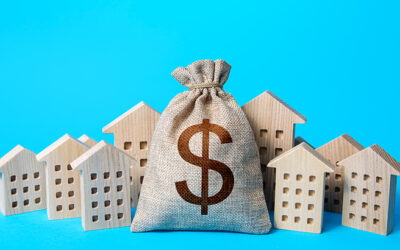
“No one knows for sure when the next recession will occur. What is known, however, is that the upcoming economic slowdown will not be caused by a housing market crash, as was the case in 2008.”
No one knows for sure when the next recession will occur. What is known, however, is that the upcoming economic slowdown will not be caused by a housing market crash, as was the case in 2008. There are those who disagree and are comparing today’s real estate market to the market in 2005-2006, which preceded the crash. In many ways, however, the market is very different now. Here are three suppositions being put forward by some, and why they don’t hold up.
SUPPOSITION #1
A critical warning sign last time was the surging gap between the growth in home prices and household income. Today, home values have also outpaced wage gains. As in 2006, a lack of affordability will kill the market.
Counterpoint
The “gap” between wages and home price growth has existed since 2012. If that is a sign of a recession, why didn’t we have one sometime in the last seven years? Also, a buyer’s purchasing power is MUCH GREATER today than it was thirteen years ago. The equation to determine affordability has three elements: home prices, wages, AND MORTGAGE INTEREST RATES. Today, the mortgage rate is about 3.5% versus 6.41% in 2006.
SUPPOSITION #2
In 2018, as in 2005, housing-price growth began slowing, with significant price drops occurring in some major markets. Look at Manhattan where home prices are in a “near free-fall.”
Counterpoint
The only major market showing true depreciation is Seattle, and it looks like home values in that city are about to reverse and start appreciating again. CoreLogic is projecting home price appreciation to reaccelerate across the country over the next twelve months.
Regarding Manhattan, home prices are dropping because the city’s new “mansion tax” is sapping demand. Additionally, the new federal tax code that went into effect last year continues to impact the market, capping deductions for state and local taxes, known as SALT, at $10,000. That had the effect of making it more expensive to own homes in states like New York.
SUPPOSITION #3
Prices will crash because that is what happened during the last recession.
Counterpoint
It is true that home values sank by almost 20% during the 2008 recession. However, it is also true that in the four previous recessions, home values depreciated only once (by less than 2%). In the other three, residential real estate values increased by 3.5%, 6.1%, and 6.6%.
Price is determined by supply and demand. In 2008, there was an overabundance of housing inventory (a 9-month supply). Today, housing inventory is less than half of that (a 4-month supply).
Bottom Line
We need to realize that today’s real estate market is nothing like the 2008 market. Therefore, when a recession occurs, it won’t resemble the last one.
To view original article, visit Keeping Current Matters.
When a House Becomes a Home
Whether it’s a familiar scent or a favorite chair, the feel-good connections to our own homes can be more important to us than the financial ones.
The Average Homeowner Gained $56,700 in Equity over the Past Year
Understanding the importance of equity can help you realize why homeownership is a worthwhile goal.
Homebuyers: Be Ready To Act This Winter
Competition among buyers will remain fierce as there still won’t be enough homes for sale to meet the demand. so be ready to act!
What Everyone Wants To Know: Will Home Prices Decline in 2022?
it’s important to note that price increases won’t be as monumental as they were in 2021 – but they certainly won’t decline anytime soon.
Advice for First-Generation Homebuyers
Your dream of homeownership has far-reaching impacts and if you’re about to be the first person in your family to buy a home, let that motivate you throughout the process.
If You Think the Housing Market Will Slow This Winter, Think Again.
All signs point to the winter housing market picking up steam, making it much busier than in a more typical year.





